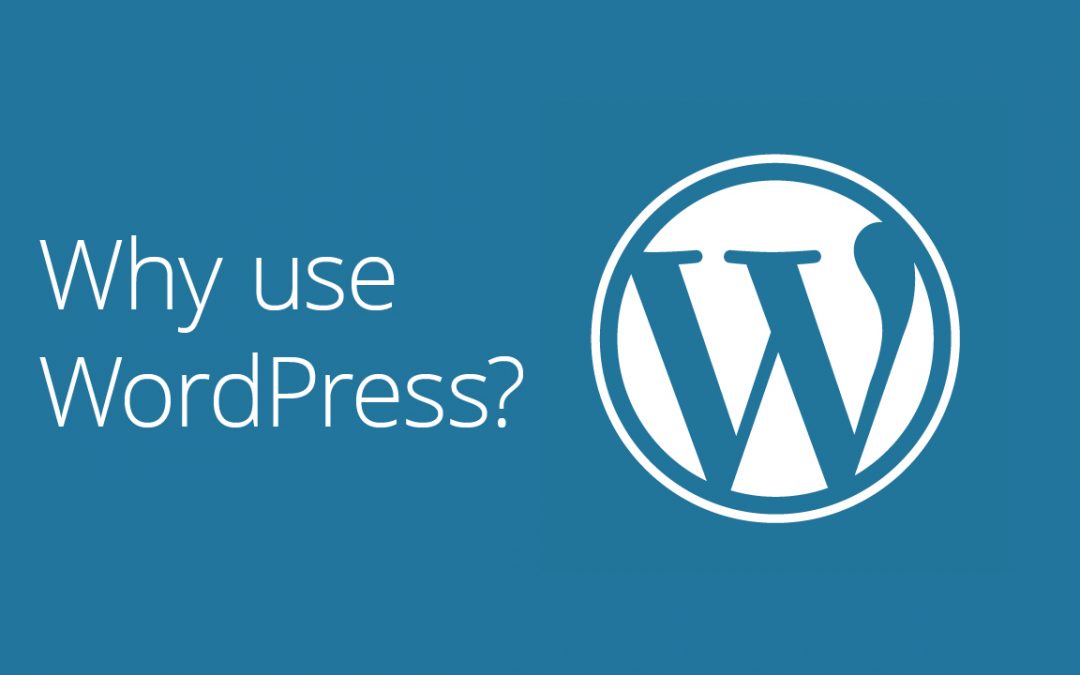You should use WordPress for your website because the CMS is available open-source, it is scalable, easy-to-install, and information is prevalent.
Unless your site requires heavy customizations or a higher amount of security, WordPress is an excellent platform to build your website.
Currently, around 75,000,000 websites use WordPress, but is it right for you? Though it started as purely a blogging platform, over 50,000 available plugins have given it the ability to act as a fully functioning CMS (content management system).
While some tout WordPress as a platform with relatively unlimited potential, it’s better to look at what it does well, what it does poorly, and stronger options for more complex digital representation.
The Strengths of WordPress
Easy Installation
WordPress is incredibly easy to both use and install for non-developers. This means that you don’t need to understand PHP development to get a basic site up and running.
Scalable / Large Digital Environment
WordPress was built to play well with others. Because of its over 50,000 plugins, if WordPress doesn’t inherently have the ability to do something, “it knows someone who can”.
This massive ecosystem for web projects offers increased versatility with no-code web design plugins, eCommerce plugins, search engine optimization plugins and beyond. The difficulty really becomes finding the right tool for the job rather than trying to build something on your own.
Because WordPress powers 35% of all websites, there is a proverbial treasure trove of information available to site owners. For every piece of the WordPress system, there are countless videos, tutorials, and other resources to help you build a great site.
WordPress can scale easily to manage thousands, or even millions of visitors.
Dan Feldman of TechCrunch explains why TechCrunch runs on WordPress:
”One of my favorite things about WordPress is its extensibility. We’re on the same platform today as yesterday but have built new tools for writers and editors. Featured and pinned articles get expiration dates, so editors don’t have to go back and manually un-feature things. Selecting a post layout is as simple as clicking a button. Automated resizing of images means faster load times and fewer distorted photos. And choosing which articles go on the homepage is a single-click affair.”
The benefits of Open Source
While development using WordPress maybe be expensive for large, custom websites, access to the WordPress CMS is freely available under an open-source license. So there is no barrier to entry. If you are interested in learning or growing your WordPress skills, it’s freely available.
This also means that there are a lot of very talented individuals with WordPress experience.
WordPress’ Weaknesses
Security
WordPress had a negative reputation for years due to its many security issues. Stock WordPress has improved a lot over the years but you still find third-party plugins littered with issues. If those issues aren’t corrected by the developers of the plug-ins, your site is left vulnerable. And with WordPress’s massive footprint, there are bots constantly scanning for vulnerabilities in unpatched sites to hack.
Plugins aren’t foolproof
Plugins can make your site expand in functionality and connect to other systems but it’s easy to shoot yourself in the foot. If you aren’t careful, you can overload your site and turn it into a clunky and slow mess.
Other Options
It’s all about finding the best tool for the job. If you need a simple blog with only a few small customizations then WP is probably a good fit. But if you need a blog with massive customizations, you may want to explore your options. If you need something that doesn’t fit into a blog model at all, you should definitely look elsewhere.
Custom CMS
What happens if your next big idea requires truly unique features? There might not be a plugin out there that does what you want. In this case, you are better off working with a developer or agency (like us) with strong skill sets to build that next big idea.
When choosing a custom CMS, the entire system is built around you, your needs, convenience, and your specifications. Instead of spending time learning a system, you are free to work with a system that was built from the ground up just for you.
Click here if you are interested in a Custom CMS with eResources.
Other factors of a CMS decision
Language preference
For those that are technical, some CMSs only support specific coding languages. If you are wanting to code in Ruby on Rails, Refinery CMS is the most widely used CMS for that language. The same goes for other systems and languages. While a system might have exactly what you are looking for, if you use Python throughout your company and all your developers know Python, you should probably avoid picking a Ruby CMS.
The Ecosystem surrounding a CMS
WordPress has been around since 2003 and has millions of support articles to help users build, troubleshoot, and maintain their websites. In other words, you won’t find yourself missing key information on the functionality of your CMS.
If you choose a different CMS, will it still be supported in 5–10 years? Changing CMSs is not a superficial change like altering a website’s design but a rebuild from the ground-up. So in the event of a CMS losing support, it would require a full rebuild of your website. Because WordPress powers 35% of the internet, it’s unlikely to lose support anytime soon. Chalk that up to another reason to choose WordPress.


